- Home
- Beverly Barton
Her Secret Weapon Page 3
Her Secret Weapon Read online
Page 3
Chapter 1
Callie dashed out of the elevator, thankful she’d had several minutes in the lift to catch her breath. The morning had been unusually hectic. Enid had stayed over at a friend’s last night and hadn’t come home by the time the minder had arrived. Thankfully Seamus adored the plump, motherly Mrs. Goodhope, who had raised four children of her own and had ten grandchildren.
Seamus had been fussy during the night, which was so unlike him. He’d woken Callie before dawn. She’d taken his temperature, which was normal, and had tried everything to soothe his whining. And when he’d said mama, and looked pleadingly at her with those big blue eyes of his, she’d almost stayed at home. But she couldn’t allow a fourteen-month-old child to dictate her actions. Especially not when she and that spoiled little boy depended upon her job for their livelihood.
Callie’s quick steps clicked her sensible two-inch heels along the corridor in the office suite of Lonigan’s Imports and Exports, which comprised the entire twentieth floor of an impressive skyscraper in the heart of the Square Mile. The relatively new building, constructed in the mid eighties, blended into the landscape in and around the Barbican Center and the nearby Tower Bridge over the Pool of London. As she hurried toward her office, she nodded and spoke to various employees. She’d been employed here only two and a half months, but she already knew everyone by first and last names and could recite each person’s individual title and duties. Of course, acquiring that knowledge had been part of her job as Burke Lonigan’s personal assistant.
“Good morning, Ms. Severin,” her secretary, Juliette Davenport, said in greeting. “Would you care for some tea and scones?”
“Yes, please, thank you. I didn’t have time for breakfast.” Callie pushed open the door to her office, then paused and asked, “By the way, has Mr. Lonigan arrived?”
“No, but he did telephone and leave you a message. He said to proceed with the McMaster’s shipment and that he’d be in by noon.”
“Oh. Yes, I’ll take care of it.”
She couldn’t help wondering if Burke had spent the night with a friend last night, as Enid had, and that was the reason he would be late coming into the office this morning.
Callie dropped her briefcase on top of her desk, plopped down in her leather swivel chair and punched several keys on her computer to bring up the McMaster’s file. The facts and figures blurred before her eyes as her mind filled with thoughts of Burke and another woman. Some tall, leggy brunette or some luscious blonde.
She had found out a great deal about Burke Lonigan in the past few months, and one of the few things she didn’t like about him was his penchant for womanizing. As part of the London social set, he was seen frequently in public, each time with a different attractive lady on his arm. She didn’t blame the ladies. After all, Burke was a very handsome, quite charming and excessively wealthy man, not to mention a fantastic lover.
Just the thought of the night she’d spent with him suffused Callie’s body with heat and flushed her cheeks. That night almost two years ago had changed her life forever. For Burke Lonigan had given her more than a sweet memory. He had given her a child.
When she had told Enid she was pregnant, her cousin had assumed the baby belonged to Laurence, but Callie had quickly corrected that misconception. Enid had been the one who’d found out who Burke Lonigan was and how he could be contacted, but Callie had refused to go to the man and tell him he was going to become a father. She didn’t blame Burke for what had happened that night. She blamed only herself. She’d been sober and in her right mind. He hadn’t. Truth be told, she had felt certain that Burke wouldn’t even remember her. And she had been right, of course, much to her own dismay.
After endless needling by Enid, Callie had gone to Burke’s house a few months after Seamus was born. While she’d been hesitating on the pavement, trying to garner enough courage to ring the bell, a chauffeured Rolls had pulled up and Burke had emerged. He’d looked right at her, smiled, nodded and walked past her—without recognizing her. After that, she hadn’t attempted to approach him again. Not until a few months ago, when she had applied for the job as Burke’s PA. Even after working with her for over two months, the man still didn’t have a clue that they had shared a night of passion.
Although she’d put on a few pounds, had cut her waist-length hair to shoulder length and wore the curly mass in a neat bun while at work, she really hadn’t changed all that much, had she? An eye infection had temporarily ended her use of contact lenses about six months ago, but a pair of small, gold-rimmed specs couldn’t possibly make her look that different. After all, she wore them only for reading and working at the computer.
Callie had come to the conclusion that Burke simply didn’t remember that night. For whatever reason, he had blocked the memory from his mind. Perhaps because he’d been plastered after downing so much Scotch and had acted rather emotional for a man who, she had learned, was never emotional. Perhaps he associated that night with the agony he’d suffered not only from losing his father, but from having been denied the right to say a proper goodbye. Whatever the reason, he seemed to have no recollection of her whatsoever.
She had learned that Burke was a tough, shrewd, in-control businessman who managed an import-export business that was worth over five hundred million pounds. Although, as Burke’s PA, she was privy to Lonigan’s records, she suspected that all of his assets hadn’t been acquired through legitimate means. Rumors abounded about Burke being an illegal arms dealer. She tried to tell herself that the rumors weren’t true, but her intuition told her that they were.
“Here’s your tea and scones.” Juliette set the pastry, cup and saucer on the desk. “Are you all right? You look knackered.”
Despite the fact that she had lived in London for several years and her mother had been a U.K. citizen, some British words still seemed strange to Callie, whereas she had adapted others into her everyday speech. Although having grown up all over Europe as the daughter of a diplomat, from the age of twelve her education had been acquired in the States, so she often found her vocabulary to be a mixture of American and British English. Oddly enough, the same held true for Burke. He had been born in London and had lived here for the past fifteen years, but he had been brought up and educated in the States, as she had.
“I’m fine,” Callie said. “Please, don’t worry about me.”
Callie smiled pleasantly at the freckled-faced young woman, who was a whiz at her secretarial duties. A talkative, carrot-topped redhead, Juliette often chatted endlessly. Deliberately, Callie didn’t instigate further conversation this morning, as she often did. She was too out of sorts after her early morning with Seamus and was worrying about where Burke might have spent his night.
She hadn’t come to work for Burke to renew their romance, an inner voice reminded her. Ha! Referring to their former relationship as a romance was indeed a laugh. There had never been a romance. Only one sexual encounter. A night Burke couldn’t even remember! She hadn’t sought the job as Burke’s PA because she harbored any silly romantic notions about the man. Instead, she’d taken the job in order to get to know the father of her child, so that she could make a well-thought-out, rational decision about whether or not she should tell Burke about his son. Someday Seamus was bound to ask about the man who had fathered him.
Although she found herself liking Burke more and more with each passing day, she also could not ignore the rumors about the mysteries surrounding his wealth and fabulous lifestyle. If her child’s father really was an illegal arms dealer and his import-export business was a convenient—albeit highly profitable—front, she could never risk letting Burke know he was Seamus’s father.
Perhaps taking this job had been a mistake, but she had thought it the best possible way to get to know Burke. And she’d been right.
In ten weeks, she had been at his side five days a week as well as several nights and even an occasional Saturday. Although their relationship remained a professional one, she knew that he w
as aware of her as a woman. This past week, when she had worked a couple of hours overtime, Burke had ordered dinner delivered to his office and they had enjoyed a lively chat and a delicious meal. But when he’d helped her on with her coat, just as she was leaving, an electrifying current passed between them. Burke had almost kissed her. He would have kissed her if she hadn’t turned her head and stepped out of his reach. She had wanted that kiss—wanted it very much. But she didn’t dare allow herself to become involved with Burke. She had to know everything there was to know about him before she risked bringing him into her private life and introducing him to her son.
His son, too, an aggravating inner voice reminded her.
Callie sipped her tea and returned her attention to the McMaster’s file. Time passed quickly when she focused on business and forgot about personal matters.
With her teacup empty, scones polished off and three hours of solid work behind her, Callie leaned back in her chair and stretched. Barely stifling a yawn, she covered her mouth with her hand and closed her eyes. She found that five-minute rest breaks often refreshed her.
A knock sounded at her closed office door. Juliette opened the door just a crack and peeped at Callie. “Mr. Lonigan is in his office now, Callie. He looks knackered, as if he’s been up all night.”
So, Burke looked exhausted, did he? Worn out by another paramour, no doubt!
“He wants to see you immediately,” Juliette said. “His exact words were, ‘Tell her to come in here and be quick about it.’ He asked me to order lunch and have it delivered. Seems you’re in for a long afternoon.”
“Tell Mr. Lonigan that I’ll be in shortly.”
As soon as Juliette closed the door, Callie lifted the telephone receiver and rang Seamus’s minder. Before Burke demanded her undivided attention, she thought it best to make sure her son was all right.
Mrs. Goodhope answered quickly, her voice ever so pleasant. Callie asked about Seamus and was told that the lad was asleep.
“I might have to work late this evening, but if I do, I’ll ask Enid to look after Seamus,” Callie said.
“Enid isn’t here,” Mrs. Goodhope said. “But don’t you worry none, dearie. I can stay over a couple of hours. Our Seamus is a good little nipper. And he’s talked my ears off this morning.”
“Has he?”
“Oh, yes. Can’t understand anything he says, except wa-wa for water, bla for banana and of course, mama and dada.”
“He’s been saying dada?” Callie’s heart sank. Seamus had been saying dada for quite some time now and he was smart enough, even at fourteen months, to associate the word with all males. He often heard other children in the park calling their fathers daddy. And on the children’s programs she allowed him to watch, the little ones always had mamas and daddies. How long would it be before Seamus wanted to know where his dada was? A year? Two years?
“Give Seamus a kiss from his mother and tell him I’ll be home to read him a bedtime story and tuck him in tonight.”
One of the stipulations she’d made perfectly clear concerning her position as Burke’s PA was that unless she had to travel with him, she would be home each night in time to put her son to bed. Burke had agreed, had even commended her on being a good parent, but he’d never questioned her about her child or the fact that she was an unmarried woman. She hadn’t lied on her job application. She would never lie about Seamus.
And what will you do if Burke ever asks you about your son’s father? her inner voice taunted.
If and when that time came, she would know what to do, what to say. Wouldn’t she?
Burke drank coffee from a Royal Doulton cup. He had picked up the habit of drinking coffee from his military stepfather, Gene Harmon, who had been a colonel in the United States Army. Gene had introduced him to some high-ranking government officials when, as a young college freshman, Burke had shown an interest in the FBI and the CIA. Little had Gene known that those entrees would bring Burke to the attention of an organization that would mold and shape him into the man he was today. As an operative for the top-secret SPEAR agency, his life was only partially his own. Lonigan’s Imports and Exports had been funded by SPEAR, and even though Burke’s expertise helped maintain the company’s extraordinary success, his job required far more from him than simply acting the part of a rich London businessman.
When SPEAR had sent him to London fifteen years ago, he’d understood why, of all the top young agents, he had been the one chosen for this position. He was, after all, London born, with a father who still resided there. No one would question why he’d returned to the U.K. to live.
SPEAR’s head honcho, a man known only as Jonah, had telephoned Burke late last night, both using cellular phones that possessed special scrambling security frequencies. Burke had been up until dawn putting into action a preliminary plan for his latest assignment. Making use of all his contacts, he had sent out word that a certain arms shipment, very much wanted by a man named Simon, had by circuitous route made its way into Burke Lonigan’s control. Being known the world over by certain people as an illegal arms dealer placed Burke in the perfect position to carry out his latest job for the agency.
Now, all he had to do was wait. Wait for the notorious Simon to make the next move. Every top SPEAR agent had been called into the war against this man—a traitor determined to bring down the entire agency. Burke and his comrades were united in an effort to eliminate the lethal threat Simon posed to the agency. But until it was time for Burke’s next move in this strategic game with the enemy, it would be business as usual for Lonigan’s Imports and Exports.
A soft knock sounded on the outer door. Burke lifted his head just in time to lock gazes with his personal assistant. The lovely, elusive and very-disturbing-to-a-man’s-libido Callie Severin breezed into his office, a tentative smile on her face.
“Good morning, Mr. Lonigan. Or should I say good afternoon?” Callie sat in the chair across from Burke’s desk, crossed her ankles and folded her hands in her lap.
Had he heard just a hint of censure in her voice? Burke wondered. What had her in a snit? “It is noon, isn’t it?” He chuckled pleasantly. “Are you upset with me for some reason?”
“No, of course not. Why should I be? What you do in your personal life is none of my concern.”
“My personal life?” He grinned broadly. “Ah, I see. You assume my tardiness is due to my having spent the night in some fair damsel’s boudoir, making mad passionate love until dawn.”
He liked the way Callie blushed. Few women blushed these days. But then she had the complexion for it. Pale and creamy, without a hint of a freckle despite her dark auburn hair and smoky gray eyes.
“As I said, it’s none of my—”
“None of your concern.” He finished her sentence.
She nodded.
“I’ve ordered in a meal for us,” he told her. “I’m afraid I must impose on you to help me get an important dinner party planned and then I must ask an enormous favor of you.”
“Doing my job is not imposing on me,” she said. “And please, ask your favor.”
“I’ll need a hostess for this affair. Naturally I’ll pay for your dress and provide the right jewelry and—”
“Isn’t there someone else more suited than I am to serve as your hostess?” she asked, nervously rubbing her hands together. “I’m sure Lady Ashley or Mrs. Odum-Hyde would—”
“Lady Ashley is in Paris visiting her sister, and Mrs. Odum-Hyde has landed herself a Brussels diamond broker and is now wearing a ring the size of an apple.”
Callie giggled. Burke liked her giggle, too. Girlish, yet throaty and seductive. If he were totally honest with himself, he’d have to admit that he liked everything about Callie. She was more than competent at her job. Actually she was the best PA he’d ever had.
But something about her bothered him. Not that he didn’t trust her. He did. Implicitly. Her background check had given him every reason to think highly of her—as a PA and as a person. A master’
s degree from the Owen Graduate School of Management at Vanderbilt University and glowing recommendations from her previous employers had been the reasons he’d hired her. That and the fact he had immediately liked her when he’d interviewed her. She’d been nervous, but charming.
She was a bright, hardworking young lady with an impeccable work record. He knew she was unmarried and yet was the mother of a small child. If he remembered correctly, the child was almost two. Although he had never questioned her about anything remotely personal, he couldn’t help wondering about her child’s father. What sort of man could have walked away from a woman such as Callie and deserted his own child?
Not much of a man, Burke thought.
I’ve never been with a real man, only a self-centered boy. The words echoed inside Burke’s mind, but he had no idea who had said them or when. Had some woman he had bedded spoken those words? If so, why couldn’t he remember the woman or the incident? Could it have been that night two years ago? He vaguely remembered drowning his sorrows at the Princess Inn after he’d been told his father had died and the family had turned him away. And occasionally, through the fog of his subconscious, he could almost make out the face of the woman who had gone home with him that night.
“Is something wrong?” Callie asked.
“What? No, nothing’s wrong. Why do you ask?”
“You had a most peculiar look on your face, as if you were in pain.”
“You can alleviate any pain I might be experiencing if you agree to act as my hostess next week.”
“Of course, I’d be delighted to act as your hostess.”
“Good, then that’s settled.”
When he rose from his desk chair, Callie stood. She was only a wisp of a girl—no, not a girl, he thought. A woman. She was twenty-seven and a mother. Hardly a girl. Size wise, she was just shy of being petite. Short, small-boned, fragile. Round in all the right places, with a slender waist. Not skinny like so many of the young women were today.
His stepfather had often told his mother, “I like a woman with some flesh on her bones.” Mary Kate Lonigan Harmon had been a plump, black-haired beauty, who had passed her striking black Irish looks on to her only son and to her two daughters, Kathleen and Fiona, who had been fathered by Gene Harmon.

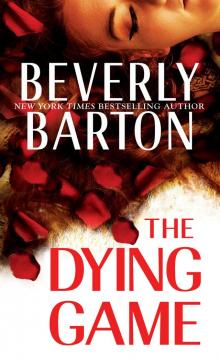 The Dying Game
The Dying Game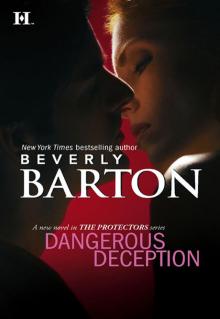 Dangerous Deception
Dangerous Deception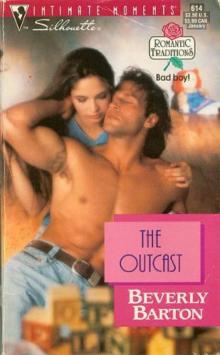 The Outcast tp-3
The Outcast tp-3 Beverly Barton Bundle
Beverly Barton Bundle Egan Cassidy's Kid
Egan Cassidy's Kid After Dark
After Dark Keeping Baby Secret
Keeping Baby Secret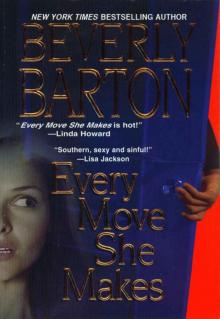 Every Move She Makes
Every Move She Makes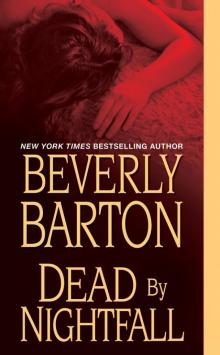 Dead By Nightfall
Dead By Nightfall As Good As Dead (Griffin Powell Book 4)
As Good As Dead (Griffin Powell Book 4)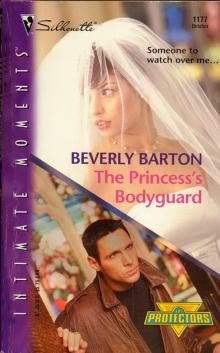 The Princess's Bodyguard
The Princess's Bodyguard JACK'S CHRISTMAS MISSION
JACK'S CHRISTMAS MISSION In the Arms of a Hero
In the Arms of a Hero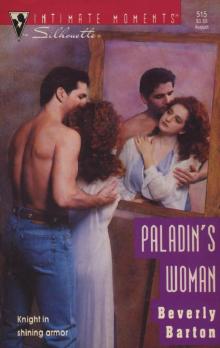 PALADIN'S WOMAN
PALADIN'S WOMAN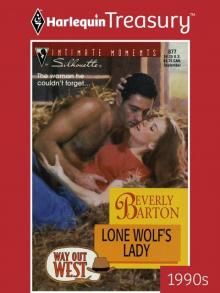 Lone Wolf's Lady
Lone Wolf's Lady Emily And The Stranger
Emily And The Stranger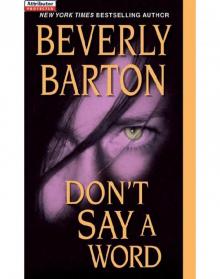 Don't Say a Word
Don't Say a Word LAYING HIS CLAIM
LAYING HIS CLAIM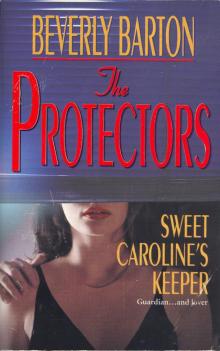 Sweet Caroline's Keeper
Sweet Caroline's Keeper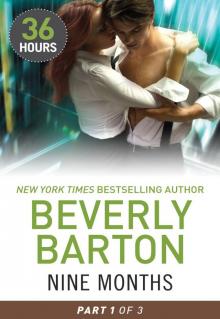 Nine Months Part 1 (36 Hours)
Nine Months Part 1 (36 Hours)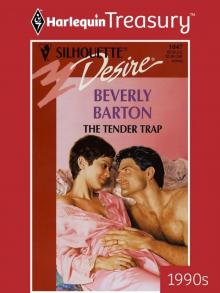 The Tender Trap
The Tender Trap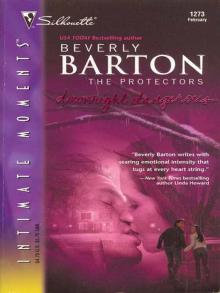 Downright Dangerous
Downright Dangerous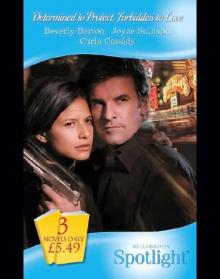 Determined to Protect, Forbidden to Love
Determined to Protect, Forbidden to Love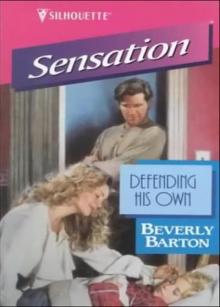 DEFENDING HIS OWN
DEFENDING HIS OWN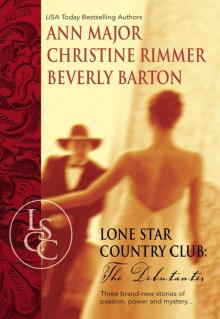 Lone Star Country Club: The Debutantes
Lone Star Country Club: The Debutantes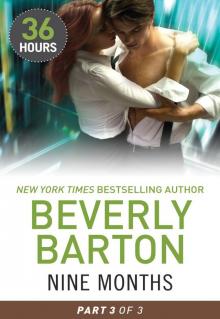 Nine Months Part 3 (36 Hours)
Nine Months Part 3 (36 Hours) Coldhearted
Coldhearted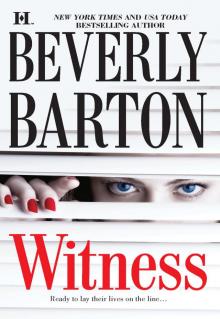 Witness
Witness Navajo's Woman
Navajo's Woman GABRIEL HAWK'S LADY
GABRIEL HAWK'S LADY Faith, Hope and Love
Faith, Hope and Love 12 Stocking Stuffers
12 Stocking Stuffers Grace Under Fire
Grace Under Fire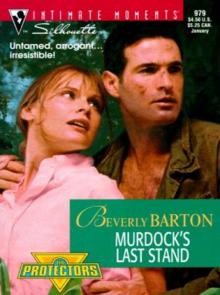 MURDOCK'S LAST STAND
MURDOCK'S LAST STAND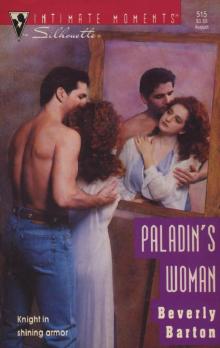 Paladin's Woman tp-2
Paladin's Woman tp-2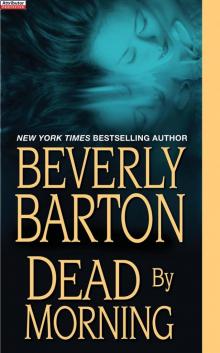 Dead By Morning
Dead By Morning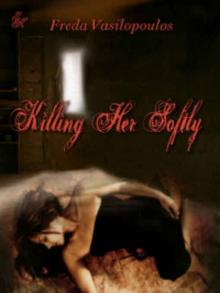 Killing Her Softly
Killing Her Softly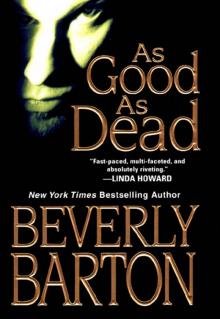 As Good as Dead
As Good as Dead Amnesia
Amnesia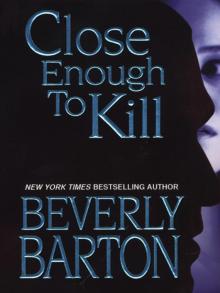 Close Enough to Kill
Close Enough to Kill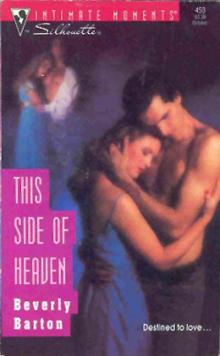 This Side of Heaven tp-1
This Side of Heaven tp-1 Her Secret Weapon
Her Secret Weapon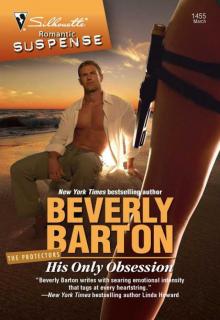 His Only Obsession (Protectors #27)
His Only Obsession (Protectors #27)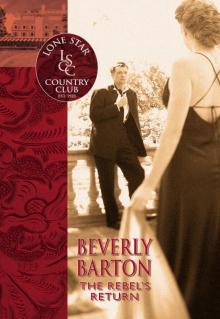 The Rebel's Return
The Rebel's Return The Fifth Victim
The Fifth Victim Ready for Anything, Anywhere!
Ready for Anything, Anywhere!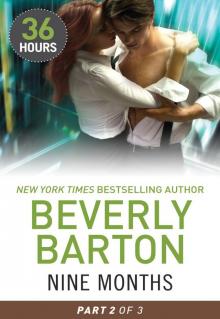 Nine Months Part 2 (36 Hours)
Nine Months Part 2 (36 Hours)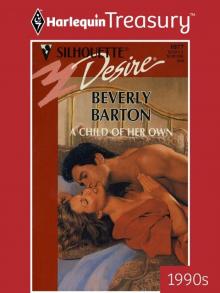 A Child of Her Own
A Child of Her Own Beg to Die
Beg to Die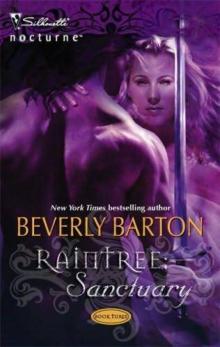 Raintree: Santuary
Raintree: Santuary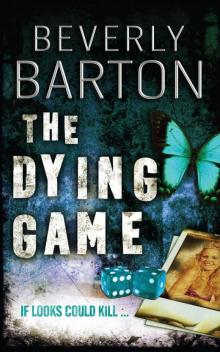 Beverly Barton 3 Book Bundle
Beverly Barton 3 Book Bundle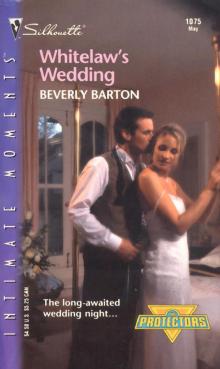 WHITELAW'S WEDDING
WHITELAW'S WEDDING What She Doesn't Know
What She Doesn't Know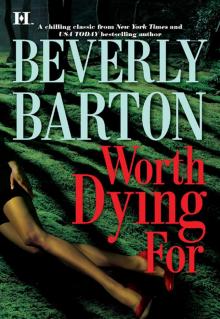 Worth Dying For
Worth Dying For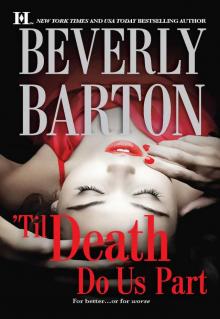 Til Death Do Us Part
Til Death Do Us Part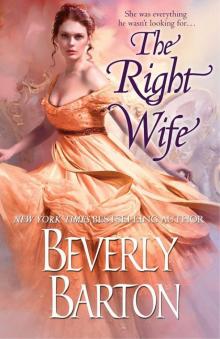 The Right Wife
The Right Wife His Only Obsession (Protectors Book 27)
His Only Obsession (Protectors Book 27)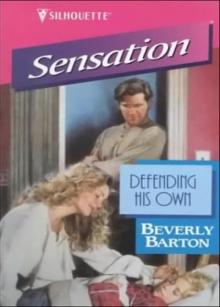 Defending His Own tp-4
Defending His Own tp-4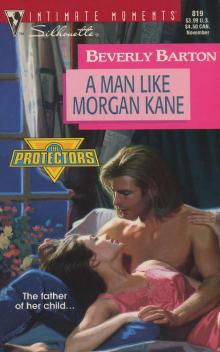 A MAN LIKE MORGAN KANE
A MAN LIKE MORGAN KANE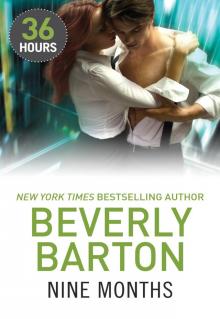 Nine Months
Nine Months If Looks Could Kill
If Looks Could Kill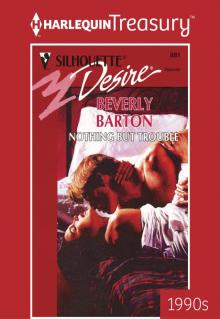 Nothing but Trouble
Nothing but Trouble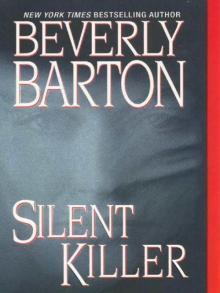 Silent Killer
Silent Killer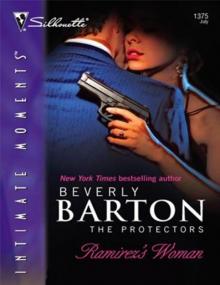 RAMIREZ'S WOMAN
RAMIREZ'S WOMAN Guarding Jeannie tp-5
Guarding Jeannie tp-5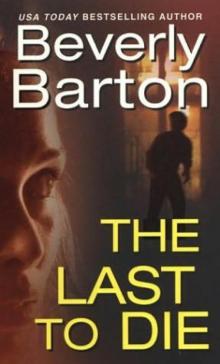 The Last To Die
The Last To Die